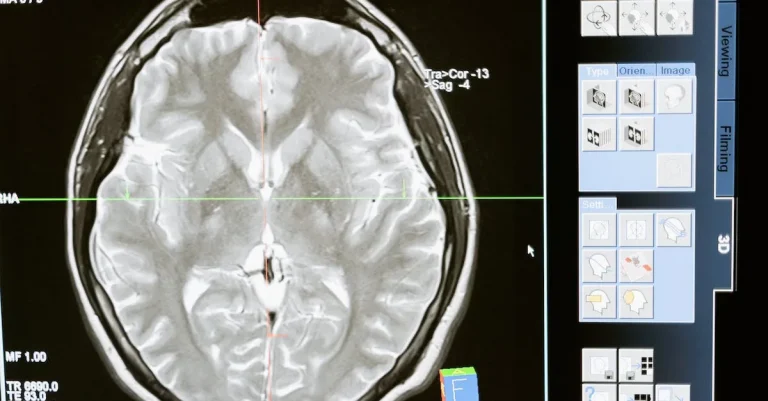Computer Science Ba Vs Bs: Key Differences Explained
With STEM fields booming, a college degree in computer science can lead to lucrative careers in software engineering, data science, cybersecurity, and more. But should you pursue a Bachelor of Arts (BA) or Bachelor of Science (BS) in Computer Science?
While both degrees cover computer science fundamentals, there are some key differences in focus and coursework.
If you’re short on time, here’s a quick answer: A CS BS focuses more on the technical and mathematical aspects of computer science, while a CS BA provides more flexibility in electives like business, social sciences, and humanities.
However, both degrees qualify you for most computer science careers.
This article will compare computer science BA and BS programs in detail including the focus, required courses, math requirements, career outcomes, and more. We’ll also provide tips on choosing between a BA vs BS in computer science.
Focus and Approach
BS Focus
The Bachelor of Science (BS) in Computer Science program focuses on providing students with a strong foundation in technical skills and practical knowledge. It emphasizes the theoretical and mathematical aspects of computer science, preparing students for careers in areas such as software development, data analysis, and computer engineering.
The BS curriculum often includes advanced courses in algorithms, programming languages, computer architecture, and systems design.
Students pursuing a BS in Computer Science often engage in hands-on projects, internships, and research opportunities to gain practical experience. They are encouraged to delve deep into complex coding problems, develop innovative solutions, and gain a thorough understanding of computational theory.
The BS degree is ideal for students who are passionate about the technical aspects of computer science and are interested in pursuing careers that require strong analytical and problem-solving skills.
BA Focus
The Bachelor of Arts (BA) in Computer Science program takes a more interdisciplinary approach, combining computer science with other fields such as humanities, social sciences, or business. It provides students with a broad understanding of computer science principles, as well as the opportunity to explore other areas of interest.
The BA curriculum often includes a mix of computer science courses and electives from other disciplines.
Students pursuing a BA in Computer Science have the flexibility to tailor their education to suit their interests and career goals. They may choose to take courses in areas such as artificial intelligence, human-computer interaction, or data visualization.
The BA degree is ideal for students who want to combine their passion for computer science with other disciplines, such as digital media, graphic design, or entrepreneurship.
Both the BS and BA programs in Computer Science provide students with a solid foundation in computer science principles. The choice between the two degrees ultimately depends on the individual’s interests, career goals, and preferred approach to learning.
Required Courses
BS Core Courses
The Bachelor of Science in Computer Science typically requires a more extensive and rigorous set of core courses compared to the Bachelor of Arts program. These core courses are designed to provide students with a solid foundation in theoretical and practical aspects of computer science.
- Introduction to Computer Science
- Data Structures and Algorithms
- Computer Architecture
- Operating Systems
- Software Engineering
- Database Systems
These courses delve deep into topics such as programming languages, data structures, algorithms, computer architecture, and more. They equip students with the necessary skills and knowledge to tackle complex computer science problems.
BA Core Courses
The Bachelor of Arts in Computer Science program, on the other hand, typically has a more flexible curriculum that allows students to explore a broader range of subjects. While the core courses for the BA program may still cover fundamental computer science concepts, they may not be as in-depth as those in the BS program.
- Introduction to Computer Science
- Web Development
- Human-Computer Interaction
- Database Management
- Introduction to Artificial Intelligence
- Computer Ethics
These courses provide a well-rounded education in computer science, with a focus on areas such as web development, user experience, artificial intelligence, and ethics. The BA program prepares students for careers that require a strong understanding of computer science principles along with interdisciplinary skills.
It’s worth noting that the specific core courses may vary between universities, so it’s important to research the curriculum of each program you are considering. Additionally, both the BS and BA programs often have elective courses that allow students to specialize in specific areas of computer science based on their interests and career goals.
Math and Science Requirements
BS Math Requirements
The Bachelor of Science (BS) degree in Computer Science typically requires a higher level of math proficiency compared to the Bachelor of Arts (BA) degree. BS programs often have more rigorous math requirements, including advanced calculus, linear algebra, discrete mathematics, and probability theory.
These courses provide a strong foundation in mathematical concepts that are directly applicable to computer science.
BA Math Requirements
On the other hand, the Bachelor of Arts (BA) degree in Computer Science usually has less emphasis on advanced math courses. While BA programs still require some math courses, they tend to focus more on practical applications of mathematics in computer science rather than theoretical concepts.
Students pursuing a BA in Computer Science may take courses such as statistics, data analysis, and applied mathematics.
Science Requirements
In addition to math requirements, both the BS and BA degrees in Computer Science typically include science requirements. These requirements may vary depending on the specific program and institution. Common science courses for computer science majors include physics, chemistry, and biology.
These courses help students develop a deeper understanding of scientific principles and their application in computer science.
It’s important to note that the specific math and science requirements can vary between different universities and programs. Prospective computer science students should carefully review the curriculum of each program they are considering to determine which degree path aligns best with their interests and career goals.
Electives and Flexibility
BS Electives
One of the key differences between a Computer Science Bachelor of Arts (BA) and a Bachelor of Science (BS) degree is the electives and flexibility offered to students. In a BS program, students typically have a narrower focus on technical and scientific courses related to computer science.
They are required to take a higher number of specialized electives in areas such as algorithms, data structures, operating systems, and computer architecture. This emphasis on technical electives allows BS students to delve deeper into the technical aspects of computer science and gain a more specialized knowledge in their field of interest.
BA Electives
On the other hand, a BA program in Computer Science offers a broader range of electives that allow students to explore other areas of interest alongside their computer science coursework. BA students have the flexibility to choose electives from a variety of disciplines such as mathematics, business, psychology, or even humanities.
This interdisciplinary approach gives BA students a well-rounded education and allows them to tailor their degree to their individual interests and career goals. For example, a BA student interested in combining computer science with business may choose to take electives in entrepreneurship or project management.
It’s important to note that the specific electives offered may vary between universities and even within different programs at the same university. Therefore, it’s always advisable for students to review the course catalog or speak with an academic advisor to understand the available options and requirements.
For more information on the differences between a Computer Science BA and BS, you can visit the following websites:
- CS Department at University of Texas at Austin
- Carnegie Mellon University School of Computer Science
- University of Washington Computer Science & Engineering
Career Prospects
Jobs for BS Grads
Graduates with a Bachelor of Science (BS) in Computer Science often have a wider range of career prospects compared to those with a Bachelor of Arts (BA) degree. The BS curriculum typically includes more advanced math and science courses, as well as a deeper focus on technical skills.
This prepares BS graduates for roles that require a strong foundation in computer science theory and practical application.
BS graduates are highly sought after in industries such as software development, cybersecurity, data analysis, and artificial intelligence. They may find themselves working as software engineers, system analysts, database administrators, or network architects.
With their in-depth knowledge and technical expertise, BS graduates are often able to secure higher-level positions and command higher salaries in the field.
According to the Bureau of Labor Statistics, the job outlook for computer and information technology occupations is projected to grow by 11% from 2019 to 2029, much faster than the average for all occupations. This indicates a positive career outlook for BS graduates in the computer science field.
Jobs for BA Grads
While the career prospects for BA graduates in computer science may not be as wide-ranging as those for BS graduates, they still have ample opportunities in various industries. The BA curriculum typically includes a broader range of coursework, allowing graduates to develop skills in areas such as communication, critical thinking, and problem-solving, in addition to technical competencies.
BA graduates often find themselves working in roles that require a combination of technical knowledge and strong interpersonal skills. They may pursue careers in software consulting, project management, technical writing, or user experience design.
These roles often involve collaborating with different teams and stakeholders, translating technical concepts into layman’s terms, and ensuring user-friendly solutions.
BA graduates can also explore opportunities in industries such as education, healthcare, finance, and government, where their interdisciplinary skills are highly valued. They may work as technology consultants, IT trainers, or systems analysts, leveraging their technical expertise to support organizations’ technology initiatives.
It’s important to note that the career prospects for BA graduates may vary depending on the individual’s additional skills, experience, and networking efforts. By staying up to date with the latest technological advancements and continuously expanding their knowledge, BA graduates can increase their competitiveness in the job market.
For more information on career prospects in computer science, you can visit websites such as Bureau of Labor Statistics or IEEE Computer Society.
Choosing Between a BA and BS
When it comes to pursuing a degree in computer science, one of the important decisions you have to make is choosing between a Bachelor of Arts (BA) and a Bachelor of Science (BS) degree. Each degree has its own focus and requirements, and understanding the key differences can help you make an informed decision about which path is right for you.
Interest in Technical vs Applied CS
One of the main factors to consider when deciding between a BA and a BS in computer science is your interest in technical versus applied aspects of the field. A BA in computer science typically has a broader curriculum that includes a combination of computer science courses and liberal arts courses.
It is a great option for those who have a strong interest in computer science but also want to explore other disciplines such as humanities, social sciences, or fine arts.
On the other hand, a BS in computer science has a more focused curriculum that emphasizes technical skills and knowledge. It usually requires more math and science courses, and it is designed for students who want to dive deeper into computer science theory and practical applications.
If you are passionate about the technical aspects of computer science and want a more specialized education, a BS degree might be the better choice for you.
Math Background
Another important consideration when choosing between a BA and a BS in computer science is your math background. A BS degree typically requires more advanced math courses, such as calculus, linear algebra, and discrete mathematics.
If you have a strong math background and enjoy working with numbers, a BS degree can provide you with a solid foundation in mathematical concepts that are essential for many areas of computer science, such as algorithms, cryptography, and machine learning.
On the other hand, if math is not your strong suit or you simply prefer a less math-intensive program, a BA degree might be a better fit. While a BA in computer science still requires some math courses, the emphasis is usually on the practical applications of computer science rather than the mathematical theory behind it.
Flexibility Wanted
If you value flexibility and the ability to customize your education to suit your interests and career goals, a BA in computer science might be the better choice. The broader curriculum of a BA degree allows you to take a wider range of elective courses, giving you the opportunity to explore other areas of interest or even pursue a double major or minor in another field.
On the other hand, a BS degree is often more structured and leaves less room for elective courses. If you prefer a more focused and specialized education in computer science, a BS degree provides a clear path with fewer elective options.
Career Goals
Your career goals should also play a significant role in determining whether a BA or a BS in computer science is the right choice for you. While both degrees can lead to rewarding careers in the field of computer science, the specific roles and industries you are interested in may have different requirements.
If you are interested in pursuing research, graduate studies, or more technical roles such as software engineering or data analysis, a BS degree may be preferred by employers and provide you with a competitive edge.
On the other hand, if you are interested in more interdisciplinary roles that combine computer science with other fields, such as UX/UI design, project management, or entrepreneurship, a BA degree can provide you with a well-rounded education that complements your career aspirations.
Ultimately, the choice between a BA and a BS in computer science depends on your individual preferences, strengths, and career goals. It’s important to carefully consider the curriculum, requirements, and opportunities each degree offers to make an informed decision that aligns with your interests and aspirations.
Conclusion
While both computer science BA and BS degrees provide excellent preparation for careers in technology, there are some key differences in their focus and requirements. BS programs emphasize technical depth with more required math, science, and programming, while BA programs offer more flexibility in electives.
However, both degrees equip students with valuable computer science knowledge and skills. When choosing a BA vs BS, consider your interests, math background, desired flexibility, and career goals. By understanding the nuances between these programs, you can make an informed decision about which degree is the best fit.







